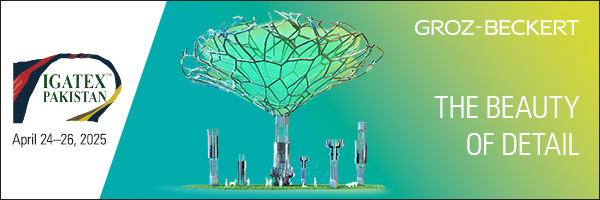The potential for trade in textile exports from Rwanda to the DR Congo. It also lists the most-sought after products which includes clothing accessories, blankets and travelling rugs, household linen and articles. Others are sacks and bags, for the packing of goods, of polyethylene or polypropylene strips or the like.
By : James Karuhanga / New time Rwandan
Rwanda is the largest exporter of textiles from the region to DR Congo but Rwandan SMEs in this line of business ought to explore this business line for expansion and diversification.
The study titled “The Opportunities for trade in the Democratic Republic of Congo” was launched on Wednesday, August 19, by the East African Business Council in collaboration with GIZ , It reveals trade opportunities that SMEs in the region can tap into.
One of the DR Congo’s most sought after textiles products is plain-woven fabrics of cotton containing more than 85 per cent cotton by weight and weighing between 100 to 200 grams.
“The size of this market has risen to $ 23.9 million, and is dominated by the Netherlands, India and Belgium. The market for sacks and bags for packing of goods of man-made materials, excluding polyethene is worth exploring for SMEs in this line of business,” reads a section of the report.

The report has data showing the potential for trade in textile exports from Rwanda to DR Congo. It also lists the most-sought after products which includes clothing accessories, blankets and travelling rugs, household linen and articles. Others are sacks and bags, for the packing of goods, of polyethene or polypropylene strips or the like.
Theoneste Ntagengerwa, the Rwanda Private Sector Federation (PSF) Spokesperson, on Wednesday told The New Times that effort is being made to expand and help Rwandan SMEs tap more into the opportunities in DR Congo textile trade.
He said: “PSF has in the recent years conducted trade missions in both North and South Kivu (Provinces of DR Congo) in order to promote trade between our countries.”
“Representatives of the business community from DRC were invited in national business forums organised last year to continue building relationships and networking among our business communities.”
For the SMEs in the food processing cluster, the report recommends that Rwandan SMEs in the prepared foodstuff business, “ought to explore expanding their operations” in sugar confectionaries.

A section on preparations of cereals, flour, starch or milk; pastrycooks’ products points out the potential of trade between Rwanda and the DR Congo for products in the category of processed foodstuffs.
Rwanda exported products worth $ 8 million in 2018, half of which ($ 4. 3 million) was destined for the DR Congo. In the same year, the DR Congo imported products in this category worth $99.7 million. The most sought-after products in this category by the DR Congo are sugars and sugar confectionery.
Data reveals that “there exists a potential for trade for Rwanda in the category of sugar and sugar confectionary products. It reveals that Rwanda exported products in this category worth $ 6.1 million (an additional $4.8 million from 2016). As noted, the DR Congo presents an opportunity for increased sales and subsequent business growth for many SMEs in the region.
The report indicates that the value of goods imported in the DR Congo in 2019, stood at $6.6 billion while EAC exports to the country in 2018, stood at $855.4 million, representing 11.5 per cent of total DR Congo imports.
Looking at the value of EAC partner states exports to the DR Congo in 2018, Rwanda comes first with $337.4 million, followed by Uganda with $204.3 million, Kenya $149.8 million, Tanzania $144.9 million and Burundi at $18.9 million.

Globally, far away China is the top exporter to the vast neighbouring country commanding a share of 31.2 per cent, followed by South Africa at 15.8 per cent and Zambia 13 per cent.
During the launch of the new study, EABC CEO, Peter Mathuki, urged EAC partner states to fast-track the admission of DR Congo into the regional bloc noting that it sources for goods that the EAC can ably supply, from very distant markets.
Mathuki said the DR Congo will benefit from the larger EAC Common Market and Common External Tariff framework.




















